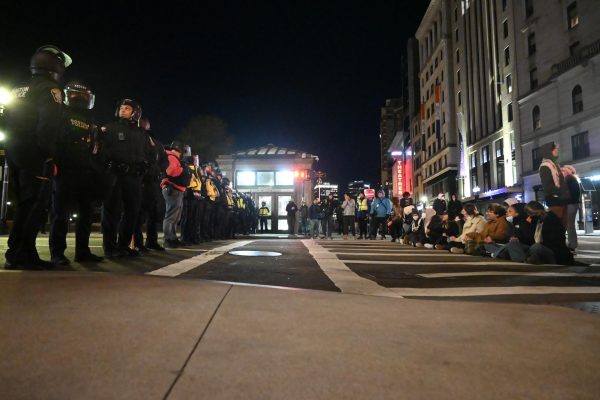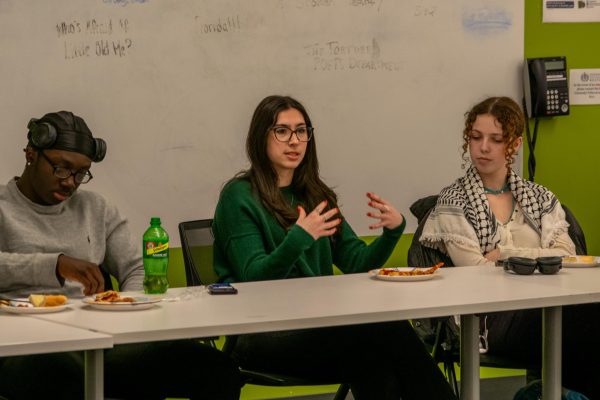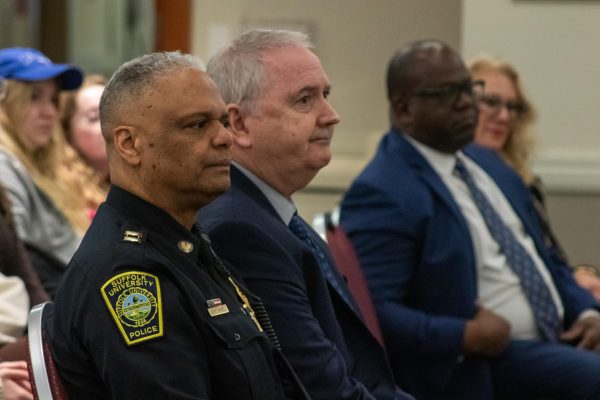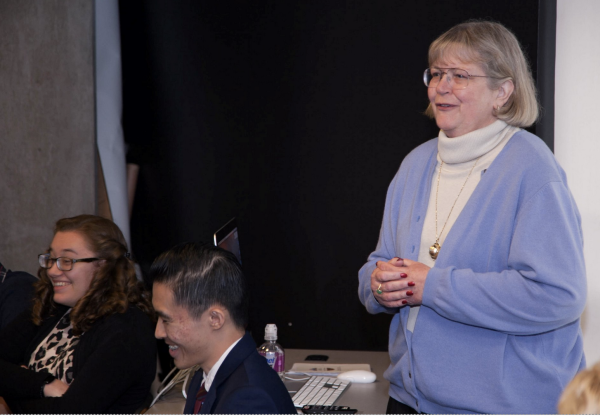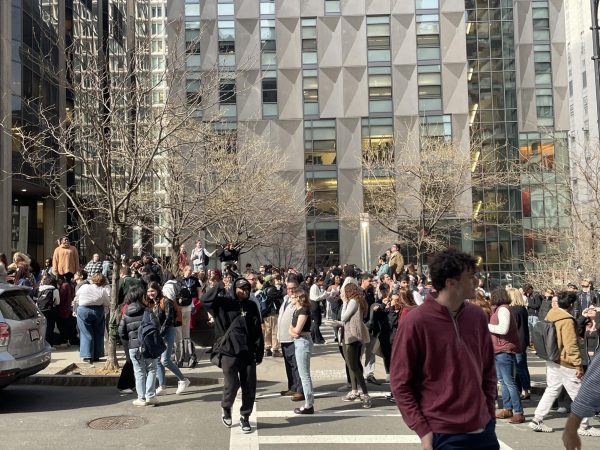Adjuncts gain new ground
New contract, improved conditions

Courtesy of Ken Martin
December 9, 2015
Suffolk’s adjunct lecturers have a new contract calling for improved pay and better benefits. This is the result of collective bargaining with the university that has recently come to a resolution.
This contract will be in effect until June 30, 2018. It will then be eligible for termination.
Suffolk Affiliated Faculty-American Association of University Professors (SAF-AAU) is the union that represents Suffolk’s adjunct professors. They have been working hard over the past year to improve the conditions that they faced in their previous contract. It has been in effect since 2009 and was used as the framework for the new contract, but it includes many improvements.
Under the old contract, adjuncts were considered senior
lecturers once they completed 10 continuous semesters. This timeline has been shortened. Seniority will be attained when a professor teaches eight of the previous 10 semesters. The title of senior lecturer is accompanied by a significant pay raise, as well as eligibility for university medical and dental care.
Suffolk currently employs over 300 part-time lecturers, accounting for roughly half of the university’s professors, according to SAF-AAU’s website. The majority of these adjunct professors must also work other jobs to supplement their meager income.
“I could not afford to do my job if I didn’t have a spouse with a full-time job,” said Carolyn Salvi, head of the SAF negotiations team and adjunct professor.
“Most adjuncts work at multiple schools, and I am no exception,” she said.
Salvi currently teaches two courses at Suffolk, works for a tutoring agency, and teaches online.
One of the most substantial gains achieved in the new contract is the introduction of a new pay scale. The university insisted on paying lecturers using a per-credit-hour basis, replacing an extremely complicated and outdated payment method that was based on student enrollment.
“I’m pleased with the new contract and the gains that have been made,” said Kenneth Martin, current treasurer and former president of the union and Suffolk senior lecturer.
“Especially with the pay raise that will make it possible for adjunct lecturers without other full-time jobs to bring in a bit more income during trying economic times,” he said.
This transition in compensation is due to the university’s intentions to begin offering one- and two-credit courses.
The result is a nearly 20 percent pay increase for professors that teach four-credit courses over a three-year span. However, professors who teach three-credit courses will observe a disparity in compensation, gaining only a five percent pay increase during this three-year period.
“I wish we would have been able to do better for our colleagues who teach three-credit courses,” said Salvi. “A three-credit class is not actually 20 percent less work than a four-credit course. They require approximately the same level of work and preparation on an instructor’s part.”
Salvi said her goals for the future include bridging this gap between compensation for differently-credited classes.
“I have hopes for our next contract that we will be able to equalize it,” she said.
Another new clause in the contract will allow adjunct lecturers to teach up to four classes per semester. This is a substantial improvement, compared to the two class per semester cap that adjuncts faced before. Furthermore, if the adjunct is qualified in multiple fields, they can now, under the new contract, teach courses in more than one department or program.
When a class is cancelled at the last minute, the lecturer is the one that suffers. Now, if a professor’s class is cancelled within 21 days before the class begins, they will now be eligible to receive a cancellation fee of $300. This may aid financial loss associated with a lecturer’s class being cancelled.
Adjunct lecturers will also now be involved in university governance. They are now permitted to attend departmental meetings and are granted a full vote in departmental matters on all issues not pertaining to personnel. Before this contract, adjuncts were excluded from these kind of meetings. They will also receive compensation for their attendance.
While these changes will prove advantageous to professors, the union also believes the benefits will be seen by students as well.
“Our hope as a union is that this will affect the day-to-day of students in terms of easier and better access to their professors,” said Salvi.
As far as the union has come, Martin still feels that there is a ways to go.
“We still have a long way to go, though, in what has become a real human rights issue, to improve the difficult conditions of a dedicated group of teachers that make up about 70 percent of higher ed faculty nationwide,” said Martin.









